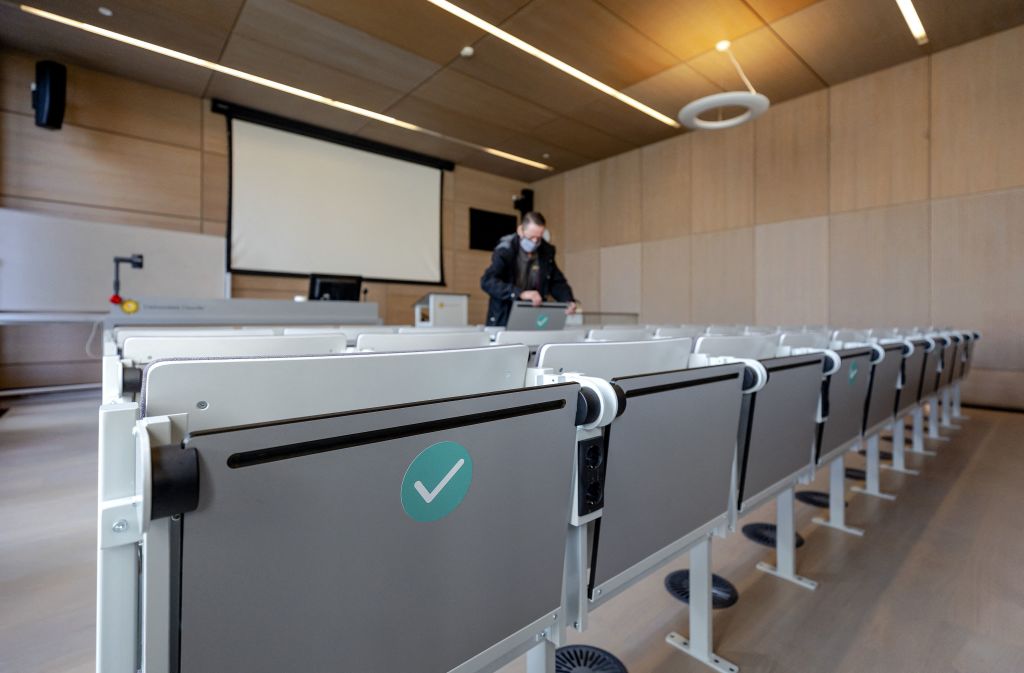Education Secretary Gavin Williamson’s announcement that universities can resume face-to-face teaching this autumn has been welcomed by many students. But vice-chancellors are not so happy about the news. Most Russell Group universities have said they will continue to keep some elements of their teaching online – so-called ‘blended learning’ – revealing their opportunistic embrace of a digital ‘new normal’. For cynical university leaders, it seems that lockdowns weren’t a disaster, but an opportunity to accelerate their pre-existing plans for digital education.
Since the disastrous marketising reforms of 2011, most universities have been locked into a ferocious competition to attract students and maximise fee income. For many institutions, this has involved grandiose, debt-fuelled and speculative investments in real estate to bedazzle prospective applicants and accommodate them on campus. This risky and unsustainable approach plunged half of Britain’s universities into deficit and entailed endless restructuring and redundancies. There were also persistent attacks on staff pay, pensions and conditions as managers sought to maximise ‘surplus’ to service their debts.
Many vice-chancellors see online education as an escape route from this death-spiral. ‘Blended learning’ allows universities to recruit students, and garner income, without the costly need to accommodate them in libraries, lecture theatres or residences. Managers have long hated in-person lectures, bashing them as poor pedagogy, because lecture theatres entail a physical cap on the size of a given programme, unless lectures are to be repeated for different ‘batches’ of students. Online learning effectively means there is no upper limit on the number of students who can enrol on to a course. It is little wonder there is such eagerness among campus leaders for students to conduct more of their studies online.
Many vice-chancellors see online education as an escape route from this death-spiral
Digital education also appeals because it can be made cheaper to provide by ‘unbundling’ the role of academics. Online teaching can be outsourced to precarious workers, whose numbers can be ‘flexed’ to match student demand. ‘Asynchronous’ materials can be permanently stored on online platforms, protected from staff strikes or even death. Responsibility for curriculum design can be reallocated to central ‘business units’ or private-sector partners. As a result, far fewer academics are needed, their role reconfigured to supervision and quality control, further weakening their influence.
Alongside vice-chancellors, a vast ‘edtech’ industry has been promoting this dystopian agenda for years. Long before Covid-19, consultancies like Ernst and Young were pushing digitalisation. Around the world, private companies and international organisations have exploited the pandemic to push harder still. The head of the International Finance Corporation, a sister organisation of the World Bank, writing for the World Economic Forum, positively salivates over how the online learning necessitated by Covid-19 is ‘driving a long-overdue revolution’ in the ‘$2.2 trillion (£1.6 trillion) global higher education market’.
But make no mistake: for many students, this spells disaster. Properly-designed distance learning, particularly when provided through specialised institutions like the Open university, can be appropriate for highly motivated, mature and professional students. But well before Covid-19 hit, research showed that online teaching can be much worse for standard undergraduate students, especially those who are struggling with their studies.
Predictably, during the pandemic, nearly a fifth of students lacked proper access to devices; over half suffered from poor internet connectivity. Substantial majorities – 63 per cent in the latest poll – also found their mental health deteriorating amid intense social isolation. Their education has also suffered immeasurably, however much universities disguise this with grade inflation.
Enforced online education should be opposed by anyone genuinely interested in inspiring students to learn and think independently, and by anyone interested in student welfare.
Even from a purely self-interested perspective, academics should resist digitalisation. Throughout the pandemic, we should have fought hard to keep campuses open, defending the importance of face-to-face education while stressing the need to shield the clinically vulnerable. Instead, many academics agitated for lockdown; in doing so, they have made it easier for vice-chancellors to make the case that their in-person work is not essential and can be conducted online.
The University and College Union claimed last August that ‘without strong controls, the return to universities would cause a minimum of 50,000 deaths’; its general secretary also declared that we should not ‘fetishise‘ face-to-face teaching. Instead of resisting the educational tech cheerleaders, the union effectively rolled out the red carpet for them.
In the coming years, elite universities will recognise that their top grade students want and expect in-person teaching to continue. But managers at other, lower-ranked universities will likely find the lure of ‘blended learning’ – and the cost-saving benefits it offers – too tempting to resist.
Will students pay full fees for such a degraded ‘service’? If not, real education could soon become a premium product. Inevitably, poorer students, anxious about acquiring crushing debt, will be funnelled towards the online option. They, and all of us, will be the poorer for it.






Comments